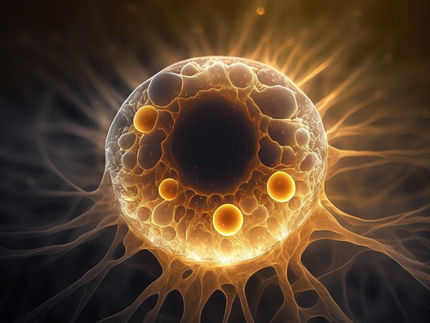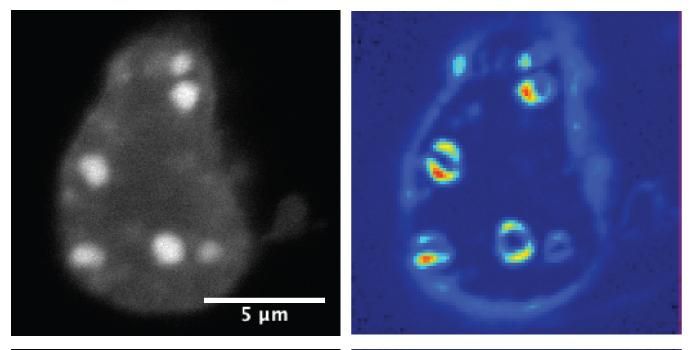Novel paradigm in drug development
Understanding resistance mechanisms to targeted protein degradation
Targeted protein degradation (TPD) is a new paradigm in drug discovery that could lead to the development of new medicines to treat diseases such as cancer more effectively. A recent study by researchers at CeMM Research Center for Molecular Medicine of the Austrian Academy of Sciences reveals global and drug-specific cellular effectors needed for TPD.
Traditional medicines mostly function as inhibitors, attacking the disease-relevant proteins that cause cancer, by binding to their accessible pockets. Following this strategy, only ~20% of all proteins are chemically addressable, leaving some of the most relevant targets inaccessible to therapeutic development.
Targeted protein degradation (TPD) is a novel approach in drug development that could overcome this limitation, and currently represents a promising therapeutic strategy towards, for example, cancer treatment. TPD is based on small-molecules, generally called “degraders”, which induce the degradation of proteins by re-directing ubiquitin E3 ligases towards the protein we aim to eliminate. In other words, utilizing the cell’s Ubiquitin Proteasome System (UPS), which is our body’s natural way of seeking out and destroying damaged proteins.
Until now TPD had been mostly studied from a structural perspective. Georg Winter’s laboratory at CeMM focused on identifying and mechanistically understanding genetic determinants of sensitivity to small-molecule degraders. “We selected a representative set of five degraders, which hijack different ubiquitin E3 ligases to degrade proteins of clinical relevance, such as BRD4, CDK9, or GSPT1. Conducting resistance screens, we were able to identify genes that determine the efficacy of targeted protein degradation”, explains Cristina Mayor-Ruiz, CeMM postdoc and co-first author of the study.
The data obtained identify central UPS regulators as essential for degrader efficacy. “When those proteins are perturbed, ubiquitin E3 ligases lose their ability to flexibly assemble and disassemble in response to cellular needs. Instead, they start tagging themselves for destruction in a process called auto-degradation. As a consequence, the tested degrader drugs fail to destabilize their target proteins and are ineffective in blocking cancer cell growth”, elaborates Martin Jaeger, CeMM PhD student and second co-first author of the study.
The research conducted by Cristina Mayor-Ruiz, Martin Jaeger et al. combining functional genomics and quantitative proteomics is the first study that comprehensively dissects cellular determinants of mechanistically different small-molecule degraders, bringing new light into their rational design.
“Now that degraders are entering the clinic, understanding potential resistance mechanisms may inform on ways to overcome it. The modulator gene-networks that we have identified can serve as biomarkers to support patient stratification, but also teach us a lot about fundamental aspects of the regulation and dynamics of the protein degradation machinery”, says Georg Winter, CeMM Principal Investigator.
Original publication
Other news from the department science

Get the life science industry in your inbox
By submitting this form you agree that LUMITOS AG will send you the newsletter(s) selected above by email. Your data will not be passed on to third parties. Your data will be stored and processed in accordance with our data protection regulations. LUMITOS may contact you by email for the purpose of advertising or market and opinion surveys. You can revoke your consent at any time without giving reasons to LUMITOS AG, Ernst-Augustin-Str. 2, 12489 Berlin, Germany or by e-mail at revoke@lumitos.com with effect for the future. In addition, each email contains a link to unsubscribe from the corresponding newsletter.



















































